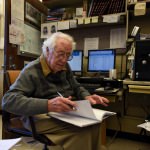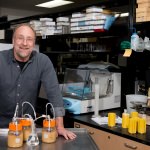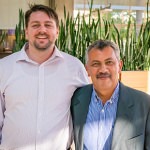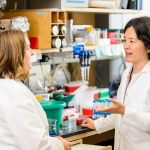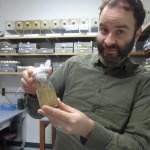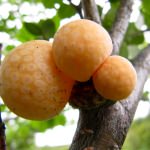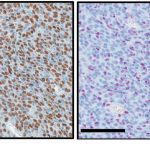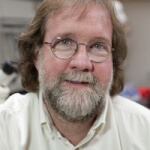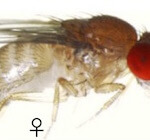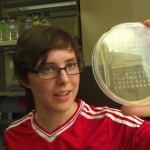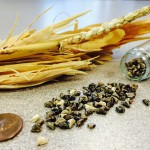Tag Genetics
Fred Blattner: genetics pioneer, entrepreneurial success, and all that jazz
Fred Blattner has been doing DNA research for more than 50 years, and he founded or co-founded three successful companies all focused on DNA: DNASTAR, Nimblegen and Scarab Genomics.
Fast Plants Program’s new varieties are tailored for classroom use
A UW–Madison program built around plants that mature quickly enough to engage the scientific curiosity of elementary through college students is releasing two new varieties that make the popular plants even better suited to classrooms.
Food scientist aiding fuel ethanol with new engineered bacteria
James Steele’s new company, Lactic Solutions, is advancing a judo-like remedy: using genetic engineering to transform enemy into friend.
UW–Madison researchers study plant aging, gain insights into crop yields
New insights into the mechanism behind how plants age may help scientists better understand crop yields, nutrient allocation, and even the timing and duration of fall leaf color.
A vision for genes: One-of-a-kind geneticist snags Ph.D.
Drew Hasley became the first legally blind person with a UW–Madison doctorate in genetics — and possibly only the second blind UW–Madison Ph.D. in biological sciences.
WARF Innovation Award winners take on Zika outbreak, airway obstruction
A potential vaccine for a worrisome virus and a real-time method to monitor sedated patients have taken top honors from the Wisconsin Alumni Research Foundation (WARF). The winning teams are led by UW–Madison's Jorge Osorio and Guelay Bilen-Rosas.
Bacteriology professor Jade Wang named HHMI Faculty Scholar
Jue “Jade” Wang, an associate professor of bacteriology at the University of Wisconsin–Madison, has been named a Howard Hughes Medical Institute (HHMI) Faculty Scholar.
Fruit flies help explain differences between males and females
John Pool, assistant professor of genetics at UW–Madison, studies evolutionary genetics in his “fly room.” David Tenenbaum Vive la difference! Trust the French…
Mara McDonald, ‘quintessential boundary crosser,’ dies at 68
Although the longtime assistant administrator in the Laboratory of Genetics and J.F. Crow Institute for the Study of Evolution retired from the university last year, she continued to touch lives.
Lessons of lager: Yeast origin becomes a complex tale
The findings are important as yeasts are critical to many industries — brewing, fermenting other foods, making drugs like human insulin, and producing new biofuels.
Carrot genome paints picture of domestication, could help improve crops
The crop's full genetic code was just deciphered by a team of researchers led by UW–Madison horticulture professor and geneticist Phil Simon.
Lewis Thomas Prize to be awarded to Wisconsin’s Sean Carroll
Carroll was instrumental in building the field of evolutionary developmental biology, known colloquially as evo devo.
UW-Madison bioethicist co-chairs gene editing study
R. Alta Charo, a professor of law and longtime student of the regulation and ethics of biotechnology, was named co-chair of a study committee established Nov. 12 by the National Academies of Sciences, Engineering, and Medicine to look into the implications of a faster, easier and more precise method for "editing" genes.
More details on origin of world’s favorite beer-making microbe
The crucial genetic mashup that spawned the yeast that brews the vast majority of beer occurred at least twice - and both times without human help - according to a University of Wisconsin–Madison study published Aug. 11 in the journal Molecular Biology and Evolution.
UW study shows how a kernel got naked and corn became king
Ten thousand years ago, a golden grain got naked, brought people together and grew to become one of the top agricultural commodities on the planet.


